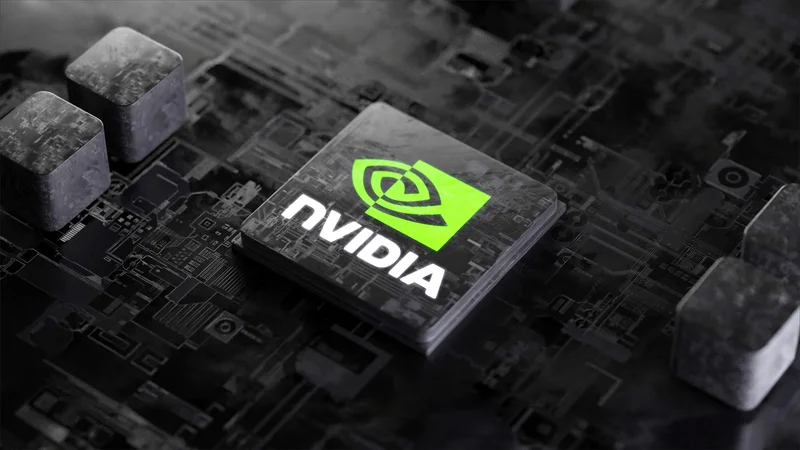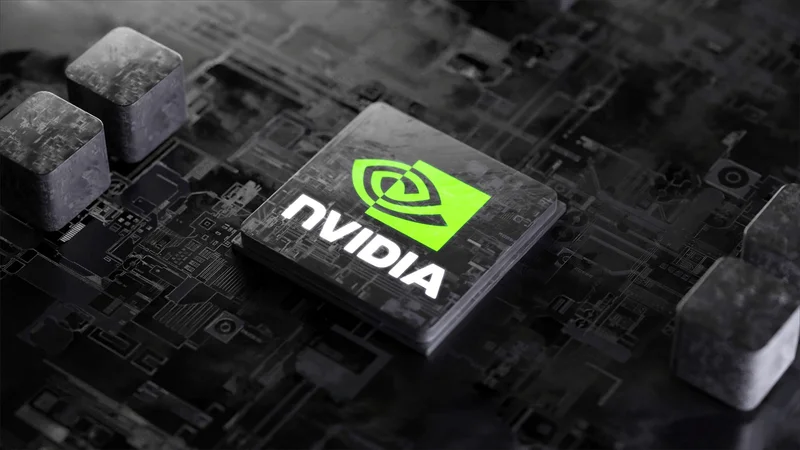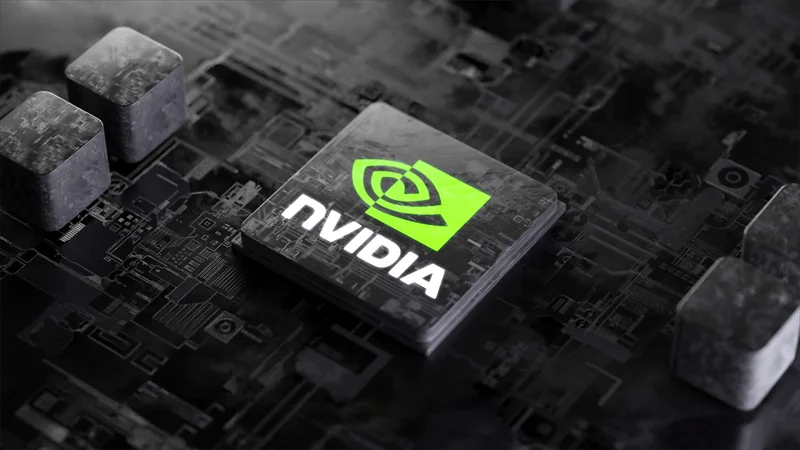Article Directory
When the news alert flashed across my screen yesterday—"Nvidia Becomes First-Ever $5 Trillion Company"—I honestly just sat back in my chair for a moment. I didn't see a stock price or a market cap. I saw a declaration. A line drawn in the sand of history, separating the world as it was from the world that is now being born. We’re living through one of those rare, tectonic shifts in human civilization, and this number, this almost comically large figure, is simply the first tremor we can all feel.
This isn't just another headline in the daily churn of `stock market news`. Comparing this to a standard financial achievement is like comparing the invention of the printing press to a successful book launch. One is a transaction; the other changes the very fabric of society. For years, we in the tech world have talked about the promise of artificial intelligence. We’ve theorized, we’ve built demos, we’ve dreamed. But the $5 trillion milestone is the market, in its brutal and efficient way, finally catching up to the reality: AI is no longer a "future" technology. It is the foundational infrastructure of the present.
The surge has been breathtaking, a twelvefold rocket ride since ChatGPT first opened our eyes in 2022. But what are we actually investing in? It’s not just silicon. We’re funding the construction of a new kind of engine for civilization. Think of it this way: the Industrial Revolution had the steam engine, which converted heat into motion. The Information Age had the microprocessor, which converted electricity into logic. This new era, the Intelligence Age, has Nvidia’s GPUs—which convert electricity into cognition. In simpler terms, these aren't just chips that make your games look pretty anymore; they are the furnaces where raw data is forged into insight, creativity, and discovery. This is the kind of breakthrough that reminds me why I got into this field in the first place.
The New Global Power Plant
What Jensen Huang and his team at Nvidia have built is nothing short of the world’s next utility. Like the electrical grid a century ago, their architecture is becoming the non-negotiable substrate upon which everything else will be built. The recent announcement of $500 billion in new AI chip orders and plans for seven US government supercomputers isn't just a big sale; it’s the equivalent of a nation-state deciding to electrify its entire country. The scale of this is just staggering—it means the gap between a scientific hypothesis and a validated discovery, or between a creative idea and a finished piece of art, is closing faster than we can even comprehend.
This concentration of power, of course, changes everything. Suddenly, a company in Santa Clara is at the heart of the geopolitical rivalry between the United States and China. When President Trump and President Xi discuss the export controls on Nvidia’s Blackwell chips, they aren’t just talking about semiconductors. They are negotiating access to the 21st century’s most critical resource: computational intelligence. Huang himself walks this tightrope with incredible deftness, simultaneously praising "America First" policies for driving domestic investment while warning that cutting off China's access to their ecosystem would be a monumental strategic error. Can one company truly serve two masters whose primary goal is to out-compete the other? And what does it mean for the world when the keys to cognitive infrastructure are held by a single corporate entity, not a government?

This is our moment of ethical consideration. With this immense power comes an even more immense responsibility. We have to ask ourselves not just what this technology can do, but what it should do. The conversations happening in Washington and Beijing are a stark reminder that we are no longer in the sandbox. The tools being built will shape global power, define economies, and alter the human experience.
Beyond the Bubble Talk
Naturally, a valuation this high brings out the skeptics. You hear the whispers of a bubble, the comparisons to the dot-com crash. I saw one analyst, Matthew Tuttle, warn that the AI expansion relies on a few players "financing each other’s capacity," and that the "flywheels could seize" if investors start demanding cash flow instead of just big announcements. And you know what? He’s not entirely wrong, but I believe he’s missing the bigger picture.
Every technological revolution looks like a speculative frenzy in its early days. The first railway stocks, the first internet companies—they all seemed irrationally valued until they became the bedrock of the economy. What Tuttle calls a "flywheel" is actually the bootstrapping process of a new industrial ecosystem. It’s messy, it’s speculative, and some companies will undoubtedly fail. But to see this as a house of cards is to fundamentally misunderstand the demand. The "capacity" being built isn't for a niche product; it's for the ability to solve problems we previously thought were unsolvable—from curing diseases to designing fusion reactors to creating entirely new forms of media.
The demand for cash-flow returns isn't a threat; it's the next logical step in the maturation of the AI industry. It’s the transition from building the power plants to plugging in the cities. The value won't just be in the chips themselves, but in the world-changing applications they enable. The question isn't if this investment will pay off, but in how many incredible, world-altering ways it will. We are witnessing the market pricing in not just the value of Nvidia's current products, but the discounted future value of a thousand breakthroughs that haven't even happened yet.
A New Chapter Is Being Written
Forget the $5 trillion number for a second. It's just a placeholder, a symbol. What it represents is the collective, global bet that intelligence itself is the next great platform. We are moving from an economy of information to an economy of insight. This isn't just another cycle of `stock market today` news; it's a paradigm shift. We are building the tools that will help us understand our universe, our biology, and ourselves in ways that have been confined to science fiction. The journey ahead will be complex and fraught with challenges, but for the first time, we have a map and a compass that can truly guide us. We are at the very, very beginning.


